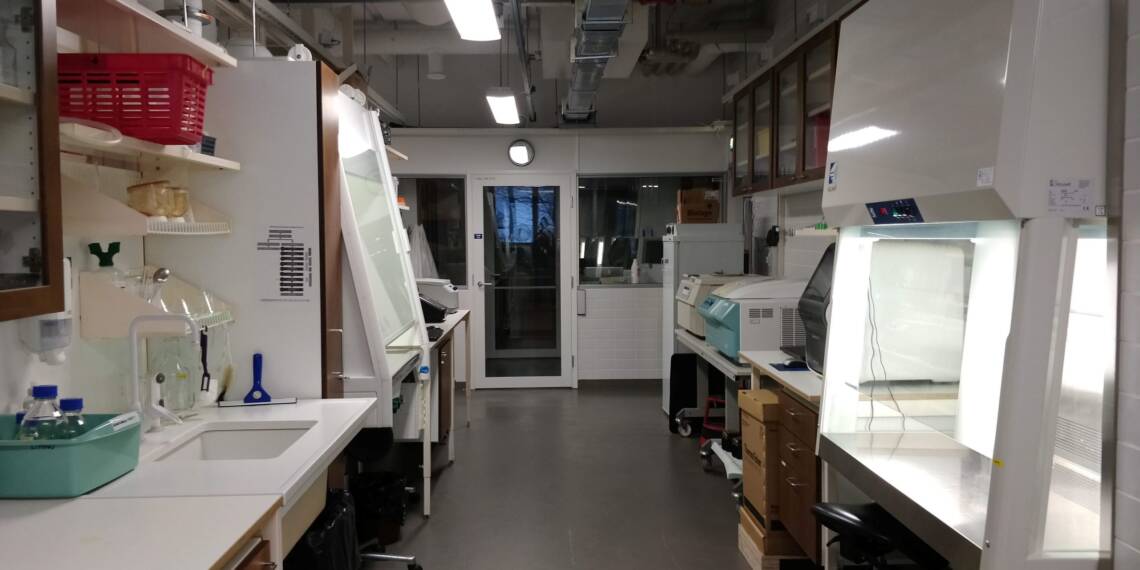
A wide range of research is carried out in the Marine Research Centre laboratory
A wide range of research is conducted at the marine laboratory of the Finnish Environment Institute (SYKE). Here, aquatic and biological samples are analysed, marine research methods are developed, and experimental marine research carried out.
The larine laboratory has laboratory facilities for approximately 50 marine analysts and marine scientists. The laboratory is part of the Finnish FINMARI Consortium for marine research. The most important Finnish partners of the laboratory are the Finnish Meteorological Institute, the University of Helsinki, Aalto University and the Uusimaa ELY Centre, i.e. a regional Centre for Economic Development, Transport, and the Environment. Additional co-operation is also practised over a wider Baltic Sea region.
The samples taken by the vessels Aranda and Algaline are researched in the laboratory
The activities of the marine laboratory are co-ordinated with research samples collected from the Aranda expeditions, as well as from the merchant ship Algaline’s monitoring programme. Water samples are used to measure nutrient levels, which are used to estimate how the eutrophication level in the Baltic Sea varies.
With the help of a microscope, scientists examine plant and animal plankton, as well as benthic animals. Such research provides data about, among other things, the impact of environmental changes on the distribution of organisms. Such studies also deliver information on the distribution of harmful algae and alien species in the Baltic Sea.
The laboratory caters to different needs
The marine research laboratory is well-equipped. In addition to microscopes and analytical equipment, the laboratory includes, among other things, optical research equipment, as well as cell counting and imaging apparatus. The laboratory is also suitable for molecular genetics and biomarker research and can be adapted to meet the needs of new research projects.

In the laboratory carries out the tasks of dozens of externally funded research projects. Such projects examine such topics as the ecological characteristics of the Baltic Sea, the effects of various remediation measures on the state of the sea, as well as the transport of microplastics in the marine food web. These projects also test the latest marine measurement technology and develop new biotechnological applications, e.g. in the production of bioplastics.
The collection of algae cultures brings hundreds of algal strains for use in research
The Marine Research Centre laboratory has a collection of algae cultures for research purposes. It contains hundreds of strains of algae from the Baltic Sea. Such algal strains can be used for growing experiments under various environmental conditions. For this purpose, the laboratory has several controllable test rooms. Similar experiments can be carried out on the same premises, e.g. on the success of molluscs in different conditions.
The laboratory also has 12 relatively large, 300-litre aquaria. With these, researchers can study the life of marine organisms in conditions similar to their natural habitat.